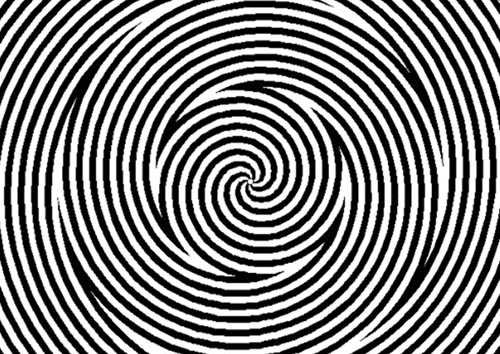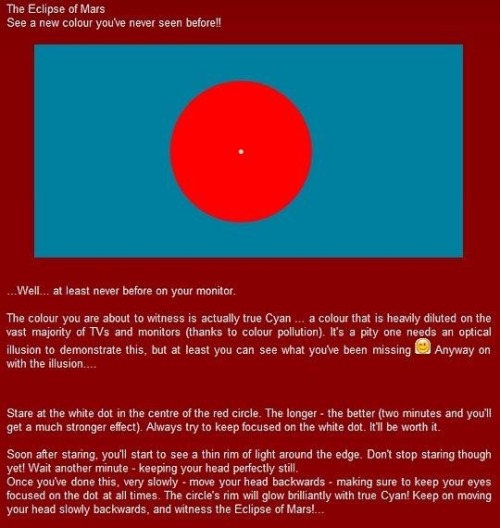Latest Posts by possiblyfromorion - Page 6

Maxwell has anger management issues
MBTI & Ideas -NTP & systemizing
Empathizing: “making sense and predicting that person’s behavior”
“The cognitive component of empathy, also referred to as theory of mind, mindreading, or taking the intentional stance, involves setting aside one’s own current perspective,
attributing mental states to the other person, and then making sense and predicting that person’s behavior, given his or her experience.” (1)
Systemizing: “understand and predict the behaviour of non-agentive events”
“Whereas we think of empathising as the drive to identify and respond to agents’ mental states, in order to understand and predict the behaviour of that agent,
we think of systemising as the drive to analyse and build systems, in order to understand and predict the behaviour of non-agentive events.
Systems are all around us in our environment, and fall into at least 4 classes: technical systems (such as machines and tools); natural systems (such as biological and geographical phenomena);
abstract systems (such as mathematics or computer programs); and even social systems (such as profits and losses in a business, or a football league table).
The way we make sense of any of these systems is not in terms of mental states, but more in terms of underlying rules and regularities.” (2)
“Systemizing and empathizing are wholly different kinds of processes”
“Systemizing works for phenomena that are indeed ultimately lawful, finite, and deterministic.
The explanation is exact and its truth-value is defeasible. (“The light went on because switch A was in the down position”).
Systemizing is of almost no use when it comes to predicting the moment by moment changes in a person’s behaviour.
To predict human behaviour, empathizing is required. Systemizing and empathizing are wholly different kinds of processes.
Although systemizing and empathizing are in one way similar – they are processes that allow us to make sense of events and make predictions – they are in another way almost the opposite of each other.
Empathizing involves an imaginative leap in the dark, in the absence of much data. (“Maybe she didn’t phone me because she was feeling hurt by my comment”).
The causal explanation is at best a “maybe”, and its truth may never be provable.
Systemizing is our most powerful way of understanding and predicting the law-governed inanimate universe.
Empathizing is our most powerful way of understanding and predicting the social world.
Ultimately empathizing and systemizing depend on independent regions in the human brain.” (3)
Autistic brain: “the ultimate pattern detector and truth detector”
“When we systemize, we make the implicit assumption that the pattern of data coming into our senses reveals the truth.
My contention is that the autistic brain, being highly tuned to systemize, is the ultimate pattern detector and truth detector.
In a high-functioning individual on the autistic spectrum, such pattern-seeking can reveal scientific truths about the nature of reality, since their systemizing can help the individual understand how things work. (…)
One reason why people with ASD (postulated to be hyper-systemizers) may struggle with empathy and be less interested in topics such as pure fiction, pretence, or deception is that these are not and never will be truth oriented.
Regarding the domain of emotions, human behavior is not 100% lawful.” (4)
See also: Nate Silver

See also: Michio Kaku

See also: Yanis Varoufakis

Sources:
Keep reading
Starfish walking on land 😱🌠
Sorry this may be too personal, but I was wondering, since you give great advice and have such a good grasp of the human condition, do you ever fall into the same follies of your askers? Do you have trouble applying the theoretically “correct” action to situations even though you understand dynamics so well? How do you reconcile such a high degree of self-awareness with sometimes making mistakes anyway? I just want to know if it’s possible to reach a point where life is easy because of knowledge
This is a common line of inquiry that comes up when one reaches a certain point in development and I’ve touched on it a little here and there. I can tell you about the experiences of many, not just my own. Throughout my life, I’ve encountered a lot of people who might consider themselves “spiritual truth seekers” in terms of wanting knowledge or answers that would, in one way or another, make life easier. I divide these people roughly into two camps: 1) those who had all they needed materially but were still deeply dissatisfied with life and didn’t understand why, and/or 2) those who sought relief from their long-running psychological issues (perhaps depression, addiction, abuse, etc). I cannot claim that I was as deeply dissatisfied with life as them (though I had my unhappiness) or that I suffered as much as some had (though I’ve had my pains). I was more of an observer because I am interested in studying how people construct meaning in life. Many of them had spent a lifetime reading books, listening to teachers/gurus, attending workshops, communing with fellow seekers, roaming the world on spiritual pilgrimages (if they could afford it). Yet, with all the claims I heard of having “learned so much” on their journey, for many, their problems never really went away or got that much better, and the act of “seeking” itself came to define their identity as it gave them purpose in life when they couldn’t quite find what they were looking for. I won’t criticize these people because I empathize with their motivation; doesn’t matter who you are, pain and suffering are not easy to deal with and it makes sense to seek a remedy.
The more time I spent around such people, examining their ways, beliefs, values, and emotional motivations, the more I realized that many of them were not truth seekers but actually “light chasers” - they wanted the “light” of knowledge to overcome the “darkness” of suffering. Some people may argue that “light” is the same as “truth” because “truth shines a light”. In theory, that may be correct. However, in practice, light chasers actually live in delusion because they only want to acknowledge what is “good” or “positive” in life and hope that this will somehow magically sweep away what is “bad” or “negative”. They believe in what is essentially “mind over matter”, that you can somehow wish away the badness. This often results in splitting oneself down the middle in order to get rid of the “bad” half. They construct a persona that is, for example, full of “lovingkindness” and strive to be it, and there is nothing wrong with wanting to be a better person, but what happens in those inevitable moments when you are most definitely NOT full of lovingkindness? I believe that how a person behaves in those moments is when you finally see the full truth of them; you not only see the light that they hope to be but also the darkness that they try to suppress. If you only understand the self in terms of “light” or “strength” or “intelligence” or whatever “positive” trait, it is like trying to know what the moon is by looking only at the lit side, the result is that your self-knowledge is only half of what it could be and there is another half that you disavow and thus have no awareness of.
I’ve witnessed groups/communities of so-called “enlightened” people devolve into infighting, jealousy, backstabbing as soon as real disagreements arose, on par with office politics in any toxic corporate environment. Then the members would withdraw in extreme confusion and existential crisis, their entire world shaken because they could no longer avoid the fact that they were not the enlightened people they believed they were. Light chasing easily turns into a destructive impulse because you eventually want to violently “force” or “cut” the bad things out, to exorcise what you define as “evil” in yourself and the world. The world is unforgiving in that it does not hesitate to reflect the truth to you, which is why light chasers often confine themselves to like-minded social bubbles. But, eventually, a light chaser is confronted with the reality of darkness and they feel compelled to eliminate it in order to preserve the illusion of light that they have dreamt up. The more you try to push away darkness, the more it creeps over you until it consumes you in your weakest moments (this is what inferior grip is all about).
Therefore, if you want to pursue self-development, you cannot leave the dark side of yourself unexamined. Some people thank me profusely for giving them hope for the first time in a long time, while others accuse me of being too negative/critical and tell me to f**k off. I fully own both assessments and both are true, because I personally believe that you cannot achieve real lightness of heart without confronting the real darkness of the soul. Dancing around a problem or trying to transmute it into something more palatable to one’s sensitivities is just stalling or evasiveness. I believe that the real learning begins when your sensitivities get triggered by uncomfortable truths about yourself because then you are facing down your dark side. However, not everyone is at the stage of ego development where they are psychologically stable enough to handle seeing the truth of themselves, so I often say that the ideas on this blog are not for everyone. If you had approached me at 15 and revealed to me the full extent of my dark side, I might be in a prison or mental hospital today - there is a natural course of development that should be honored.Most people stubbornly want to see themselves in a positive light because ego is a fragile thing and it is much much easier to build heavy defenses around oneself than to forge real self-esteem. To really grow as a person requires nurturing strength and humility, a very tough combo to pull off. Strength is the willingness to bear the burden of knowing darkness but without succumbing to it. Humility is fully admitting ignorance so as to be completely open to learning the truth.
Self-development is not the same as striving for a perfect ideal. Thinking that you know what is “perfect” is like claiming omniscience, it is somewhat arrogant to believe that you (and only you) know what is the best path or the best way. You can always try your best or work to the best of your ability, but it is not useful to believe that you know what is The Best. Perfectionism is just another form of light chasing because it involves building a persona to hide your cracked self-esteem and/or trying to bully the world into being whatever makes you feel good in the moment - all about ego. Perfectionism easily devolves into a destructive impulse that violently strikes at whatever one deems “imperfect”. There is a subtle difference between trying to contort yourself or the world into an image of perfection versus trying to become the person you are meant to be. The former is fakery or delusion that makes almost everything into your enemy, it is a constant struggle against the tide as you deny darkness, and it leads to psychological fragmentation and a hateful attitude as you gradually succumb to darkness. The latter is discovering the truth of who you really are in this world, becoming mature enough to know that light and dark are two sides of the same you, and it leads to a deep sense of wholeness and empathy.
Jung basically believed that confronting individual darkness was the solution to collective evil. You are both the light and the dark. If you see the wisdom in this statement, there is nothing to “reconcile” because the dark will not feel as though it “haunts” you unless you only want to see yourself in the light. For instance, the prospect of making a mistake will not loom over you and produce ever-present fear and insecurity unless you desperately strive towards the image of “a person who never makes mistakes”. Ironically, the more you fear making mistakes, the more likely you are to make mistakes because your mind is too riddled with dark emotions to see clearly. When you fear making a mistake, you fear seeing your imperfection, you even fear feeling fear, then all of your effort is spent on trying to keep your inner darkness away - your ego becomes a black hole that sucks away your mental energy. When you accept that bad exists, then your mental energy is freed to think about how to handle it, as opposed to wasting energy on things like regret, rumination, complaining, or beating yourself up. As you say, my advice to others proves that I am well aware of the many pitfalls that people (which includes myself) can trip into, in fact, I could not possess some of the knowledge I possess without having fallen flat on my face time and again. Why is falling a “bad” thing if these situations yielded me so much useful knowledge? Because falling is painful? Yes, but not all pain is bad. Some kinds of pain are self-inflicted and some kinds of pain disappear quickly if you understand why they appeared, so it is necessary to become more discerning about the different kinds of pain, but you cannot do that if you just shove all pain away into the darkness at the first hint of discomfort. If you don’t appreciate that the pain of making mistakes can teach you invaluable lessons, then perhaps you may say that you really have failed.
You ask whether there is a point where knowledge makes life “easier”. If by “easier” you mean some ideal version of life where you are able to do everything perfectly the first time every time and nothing ever feels hard, then the answer is “no” because you are light chasing and denying the reality of human nature and what it means to live a physical existence. If by “easier” you mean that you are more capable of handling difficulty, disappointment, and failure, then the answer is “yes” because, when you no longer fear these “dark” things, your being is lighter and your mind more open to seeing and handling situations objectively. In living life fully, you cannot avoid every pain, challenge, mistake, setback, or problem, but you can learn to face the truth confidently, without undue fear, resistance, or self-loathing.
“There is no doubt that healthy-mindedness is inadequate as a philosophical doctrine, because the evil facts which it positively refuses to account for are a genuine portion of reality; and they may after all be the best key to life’s significance, and possibly the only openers of our eyes to the deepest levels of truth.” – William James
Philosophical Rejection Lines For That Dude At The Bar
The Descartes:

The Aristotle:

The Nietzsche:

The Leibniz:

The Socrates:

The John Stuart Mill:

The Democritus:

via: Buzzfeed Books




Cthulhu pie
It’s pumpkin season guise.







Well, this is definitely the most fun I’ve had while making a post.
Inspired by this one from capnphaggit. Images & copyrights: Trifid Nebula (M20) by Marcus Davies, The Cat’s Eye Nebula and Star-forming region Sharpless 2-106 by NASA, ESA, the Hubble Heritage Team (STScI/AURA). Please don’t remove the credits.

Space Trip Art Print by Enkel Dika
*More Things & Stuff
I, too, sing America. I am the darker brother. They send me to eat in the kitchen When company comes, But I laugh, And eat well, And grow strong. Tomorrow, I’ll be at the table When company comes. Nobody’ll dare Say to me, ‘Eat in the kitchen,’ Then. Besides, They’ll see how beautiful I am And be ashamed— I, too, am America.
Langston Hughes, I, Too

[x]
(via scientificphilosopher)


Kurt Vonnegut, Breakfast of Champions
Freedom is nothing else but a chance to be better.
Albert Camus, Resistance, Rebellion, and Death (via philosophybits)
One understands only in proportion to becoming himself that which he understands.
Søren Kierkegaard, Journals and Papers (via philosophybits)
On Perfectionism
I have received many questions that relate to or boil down to problems with perfectionism, so here are some thoughts for the archive.
Keep reading
Many people have tried to attribute my thirst for knowledge as Ti based, but I am fairly confident that I am an INFP. Would you say that my thirst for knowledge and curiosity relates more to my Ne and needing to understand multiple perspectives? And would you say that is a common error some people make with typing based of stereotypical factors, thinking they are Ti just because they like researching/understanding things fully when that's not really how they reach conclusions?
It’s a common misconception and a common reason why Ns mistype. “Thirst for knowledge” is easily misconstrued when one does not consider the REASON or motivation behind it, and you must understand cognitive motivation to identify functions correctly. In everyday speech, the phrase carries the connotation of someone who likes to learn for the sake of learning or someone who is intellectually curious for the sake of valuing knowledge in itself -> this is NOT Ti. Ti is a judging function that systematizes information, not a data gathering function, it wants to construct unambiguous and fact-based judgments about the world, it wants to create very elegant and precise rules and principles on which to make confident, independent decisions. Therefore, Ti wants to “figure something out” but not for the sake of “just knowing”, rather, the purpose is very specific in wanting a very particular framework of knowledge to navigate particular situations with confidence.
“Thirst for knowledge” is more likely to arise from the intuitive functions because they are data gathering perceiving functions. Ns are more likely or have a greater urge than Ss to thirst for knowledge because they value knowledge that goes beyond what is readily known. Therefore, INFPs and INTPs both tend to have a thirst for knowledge because of high Ne, INPs tend to be more intellectually curious than ISPs. And Ti dom descriptions are often skewed towards INTPs. STPs can be intellectually curious but they are usually more focused in their interests (Ni) and concrete in terms of wanting to build up a physical, practical, or hands-on skill/ability (Se). High N functions often force people into being what appears to be “analytical” because they flood the the mind with so much abstract information that one is often forced to sort through it, however, it is the judging functions that do the actual sorting and analyzing, even though perceiving and judging functions often feel like they work seamlessly together, especially when both are pointed in the same i/e direction. When Ns read the Ti description, they wrongly assume that wanting to “figure out how something works” means the same thing as “thirst for knowledge” because that’s how they want to interpret it for themselves. NFs are often unconsciously insecure about feeling intellectually inferior, so when they read the Ti description, they want it to fit and even twist it to fit. NFJs in particular often confuse Ni and Ti (I think almost every week I get at least one NFJ who believes they are T).
description of the functions as agents of will
Se: mastery - I overcome myself the vessel, I fuse with my intent, I am the hollow of the storm.
Si: equilibrium - I stretch like a ray in epipelagia, adjusting, perfecting, a state of flow no current can disturb.
Te: avalanche - at these altitudes, any snowball is the pebble that takes me down the mountain.
Ti: scythe - to put together I first must take apart.
Fe: amber - I embalm you, gently, in coats of arms like gold.
Fi: paragon - pierce the flesh and find me; the core that doesn’t move.
Ne: hunter - I follow the holloways through faith through myth through fable through fact to the spring.
Ni: traveller - I descend into the deepest cavern, I scale the highest peak, I do not step off the road.
Case of INTP: Dumb until Smart
It has come to my attention that INTP (especially) have to deal with this issue: being dumb until they suddenly become smart.
What do I mean by this?
I look to introverted thinking (Ti) dominance in the INTP to answer this peculiarity in the INTP to answer that question.
The INTP’s Ti is always running. It is always building and correcting one’s internal framework, looking at different facts, figures, concepts, and arguments (even if contradictory) to create the most accurate build of whatever Ti user is interested in (could be anything from fashion to math, by the way).
Now, that sounds really cool. I admit it. However, there’s a caveat to that: internal. Unlike Te dominant people (extraverted thinkers: ENTJ/ESTJ), the thinking process in the INTP is introverted, meaning the INTP uses a subjective categorizing system to identify, sort, and store the data they observe and obtain. Te users use the external data itself to make decisions, while Ti user must have a framework in which to put that data into, otherwise it’ll likely have no relevance and therefore, be forgotten.
Thus, an INTP is only as smart as the model one has built in one’s head, and equally, as dumb as the model one has built. If that model is inaccurate in some way (whether due to lack of due diligence in Ne and Si or unconscious Fe), the INTP individual will have trouble identifying problems and and coming up with adequate solutions. INTP will struggle, not with the delivery of thought or idea, but rather, with the reception or lack thereof.
Because the subjective Ti model is incorrect or inaccurate, the Ti using INTP will not be able to figure out where the disconnect is. Then it’s the familiar pattern; confusion, frustration, and finally, decision that everyone else is dumb for their inability to comprehend or understand. Because Ti is a rational judging function (even if introverted), INTP will actually believe the self is right and even be able to convince themselves that they’re not the problem, even if others point out flaws or differing viewpoints.
That’s how you have a dumb INTP.
However, with enough failures, some dumb INTPs stop thinking that they’re 100% correct. They start to question their presumptions and conclusions. They question the model. Some of them may question themselves (could lead to depression or other instability during this phase). They realize that the model they have in their head might be incorrect and start research to verify that their “deductions” are correct.
This is how you have the typical, average INTP.
Then, the INTP begins to seek out more objective observations. They talk to people, asking for input. They share their thoughts, not with the goal of arguing, but for clarification. And when they’re in this “exploratory mode,” they will likely tap into their unconscious inferior Fe function, which will prevent them from coming across as crass, cold, or like a jackass. In the process, INTP will likely find many consistent but also inconsistent information, they’ll find different but potentially equal and valid points, and seek to integrate it to the Ti model. As the INTP actively turns and twists the model within oneself, INTP will finally be granted their “Eureka” moment, when everything finally clicks into place. Of course, through this process, their model is going to be potentially immense and complex (yet at the same time, incredibly simple for the Ti user) due to the amount of Ne-Si data collection that will have likely gone into it.
INTP will find that their model is perfectly suited to understanding many areas, but also to actually solve important real life problems, … this will make the INTP very happy. This allows the inferior Fe to come out more as well, due to the relaxation resulting from an accurate understanding. The INTP will then continue looking at new things to incorporate and change their models to be even more accurate and applicable in even broader areas of life, and this will make a very excited INTP. This also helps those around them, and they’re more likely to come to the INTP for advice, which the INTP will more than likely be happy to help with (depends on the problem).
And that’s how you finally have the smart INTP.
Not saying it’s easy to be any other type, but being smart INTP takes a lot of determination and work for sure. So keep at it, INTPs. You’re always going to be a work in progress, but that’s when you’re “smart.”

Leo Tolstoy, Anna Karenina

“As soon as it comes to the point where the crowd judges what is truth, it will not be long before decisions are made with fists.” – Soren Kierkegaard




Misunderstood Ne

I often get asked to help people figure out their type, but there’s a lot of confusion / superficial understanding of what the functions do – based in part on stereotypes. One of the more common misconceptions is that Ne is just about ideas; people think if they have lots of ideas, or don’t mind change, or are impulsive, it means they might be Ne.
Now, it could mean that or it could not, but something to remember is this:
Ne is Extroverted INTUITION.
What does intuition do?
It reads between the lines.
What does dominant or strong intuition do?
It can read between the lines accurately.
This misconception about high Ne being believers in rainbow unicorns does not really take into consideration what Ne actually does or produces. Yes, it gets ideas. But it also sees the bigger picture – all the time. It also sees intuitive potential – most of the time. It also focuses on gathering information and forming often accurate conclusions – a lot of the time. Yes, it can sometimes be outside reality. Its most major flaw is reading too much into everything. But, it’s INTUITION. If it is not right at least half of the time in reading between the lines, it’s not proper (realistic / accurate / trained) intuition.
Allow me to elaborate on an example.
ENFP cannot figure out why she has not heard from X friend for six weeks. Even though X friend often takes a long time to respond, this silence is… unusual. ENFP thinks about it for half a day, and connects the dots between two ‘linked’ situations – the fact that X is behaving unusually right now, and that about eight weeks ago, ENFP gave X their novel to read. ENFP concludes that X must either hate the novel, or not be reading the novel (and feeling guilty), or finds the novel boring – and is afraid / guilt-ridden / unsure of what to say to ENFP. ENFP decides to test this theory by writing X, saying they no longer need X’s input on the novel, since they have received feedback from others and are working to ‘fix the novel’s flaws.’ Unsurprisingly, ENFP receives a long, newsy e-mail (with an undercurrent of relief that ENFP picks up on) the very next day; and everything seems normal. ENFP concludes their theory was correct. About four months later, X confesses the truth to ENFP that the novel bored them, and they felt bad, and didn’t know what to say, so they hid out of guilt; at which point ENFP just smiles and says, “I know.”
Ne is intuition; reading between the lines, and choosing the most rational theory (NeTi or NeTe) or explanation for whatever it sets its mind to. Being as it IS intuition and is focused on building connections between different pieces of information / knowledge / experience, the more attention the Ne pays to things, the more accurate their conclusions will be. Ne with a good developed T function will run with the most rational / reasonable intuitive conclusion – in this case, the novel and my friend’s strange behavior is connected; and then NeFi’s understanding of human nature / emotions accurately assumes the motive behind the absence is guilt / avoidance of confessing an emotional truth (”I don’t like your novel”), aided by an extensive past full of similar experiences with this person so that the ENFP knows their behavior patterns (Ne/Si).
If the ENFP tested that theory and X did not immediately write them back / the silence continued, ENFP would then progress to another likely cause / effect based on the same intuitive system / reading between the lines / connecting past behaviors with present potentials (depression based on their problems at work, which is causing them to enter a negative self-loop?).
While it is true that Ne can be impulsive, indecisive, and run with other people’s ideas, it is also true that it is still intuition and can have incredible insight into situations, people, potential short-term problems (and how to resolve them), the psychological needs of others, and what people are not saying.
Many ‘intuitive’ fictional characters do not have real Ne, but a pale, superficial imitation of Ne (and this is also the case for every other type / function); when you meet a real Ne, you will know it due to their intuitive insights. So when trying to determine if you have high Ne, ask yourself how often you read between the lines, how easily you can connect separate pieces of information to form an intuitive perception, and how accurate your perceptions are; it’s more than just ideas, or being impulsive, or being indecisive. It’s about broadness of insight.
- ENFP Mod
how do you tell an unhealthy isfp from an unhealthy infp? thanks 🙏
UNHEALTHY ISFPs fight against the influence others may have on them, trying to hold on to their independence and individuality. Steve Rogers/Captain America is a prime example of this in Civil War. They become stubborn and defensive of their way of life, not adjusting to the external world as it really is. Harry Potter and Zuko also exhibit this behavior. They both try their hardest to disregard the input of others in an act to preserve their initial Fi judgments. They both have to accumulate more Se experience in order to have a more objective view of themselves and their judgments. For Zuko it takes being exiled, being with his Uncle who pushes him constantly, and making even more mistakes in book 3 to come to a healthier place where he accepts the influence of others on himself.
UNHEALTHY INFPs fight against opposing ideals they find problematic. They challenge others and their ideas hoping to point out the flaws and prove the person they disagree with to be wrong. They can seem more extraverted when they are unhealthy in this way. In their own way by attacking the ideals of others they are trying to defend their own inner ideals from outside influence. Denying their proper Ne to see other viewpoints and the objective world. Their inferior Te is wielded so they believe they are being rationale in their defensive strategy. Amon from Avatar: Legend of Korra is a great example of this. For a non-villain that does this it is important to look at April Ludgate from Parks and Recreation. This behavior is often why she is mistyped as ISTP/INTP. They see her as more impersonal playing devil’s advocate, but when she is trolling people in her passive-aggressive way she is really on the defense trying to preserve her Fi and point out that everyone else is inauthentic.
The Gist:
ISFPs ignore others to preserve their sense of integrity/authenticity. INFPs fight others, almost like devil’s advocate but trying to prove some moral point. Both are stubborn.

Thomas Paine, “Public Good”
There is a kind of happiness and wonder that makes you serious. It is too good to waste on jokes.
C. S. Lewis, The Chronicles of Narnia (via philosophybits)
Inert vs. Contact Subtype in a Nutshell
I felt this is useful information that should be more known, so I decided try to dessiminate it myself.
Guardians
ISTJ:
ISTJ-Si: Courteous, professional, appreciator of comforts, lowkey individualistic
ISTJ-Te: Industrious, severe, impatient, very resourceful within their area of expertise
The latter is apparently rarer and occassionally mistypes as INTJ. I presume the former’s orientation toward comforts can completely turn around/express itself differently depending on enneagram.
ISFJ:
ISFJ-Si: Measured, considerate, unhurried, mildly inquisitive Can be artsy.
ISFJ-Fe: Lively, friendly, upbeat, sociable, tiny bit cheeky.
Basically elegant vs adorable.
ESTJ:
ESTJ-Te: Serious, straightforward, more taciturn, courageous; Can be strict or have no chill
ESTJ-Si: Enthusiastic, sociable, hospitable, a lot more expressive, does have chill but can be pushy
The stereotype is ovsly more inspired by the former; The descriptions of the former sound somewhat unflattering, but theoretically, they’d have better acess to their Ne, so there’s that.
ESFJ:
ESFJ-Fe: Very expressive & social but also temperamental, wears more “attractive” clothes, can be a bit scattered, opinionated
ESFJ-Si: More plain but also more practical & dilligent; Lively, charming and helpful, can tend to overwork themselves
The popular stereotype is the former, the descriptions on internet profiles more the latter.
Artisans
ESFP:
ESFP-Se: Proactive, energetic, confident, assertive, can be dramatic, leader material
ESFP-Fi: Charming, team worker, pragmatist, likes having the newest & shiniest toys, not quite as risk-taking
The stereotype is ostensibly more based on the latter. More ppl should remember the former exists before declaring ambiguous cases as ESTP or ENFP.
ESTP:
ESTP-Se: Basically the commonly known “flashy clever bastard” version; Forget the “clever” part at your own risk. Snarky, charming & strong-willed with a soft spot for their favorite people
ESTP-Ti: Much more low-key in clothing & demeanor, collected, suspicious & skeptical, good with business stuff, cunning behind-the-scenes-y person but notices everything that happens around them
The latter could be mistaken for introvert, or even an intuitive if someone’s going purely by stereotypes. Chances are they’ll have more pronounced Ti-ish speech patterns & expressions.
ISFP:
ISFP-Fi: modest, gentle, caring, well-mannered, sensitive, can be shy & dislikes to impose, but firm & critical about principles, very perceptive of ppl’s behavior
ISFP-Se: Tough, fortright, blunt, venturesome and vigilant and adaptable, impressive death glare.
Gentle Flower Child vs. fierce independent adventurer. Descriptions are usually one or the other, leaving at least one half of them miffed. The former can be mistaken for ISFJ, the latter for an extrovert.
ISTP:
ISTP-Ti: Very discerning & autonomous, likes some degree of preparation, stoic & preseverant, modest & unpretentious but can also be friendly & attentive
ISTP-Se: More restless, gusty & impulsive, though more outwardly courteous & communicative as well, perhaps more sportsy & stylish, bit more sociable
All the “badass vigilante” or “hardcore hobby person” stereotypes sort of reference the former. The latter seems like that stereotypical super chill male friend. (or tomboyish soccer girl.)
(Boy, does socionics as a whole ever have a crush on SPs. If you’re tired of descriptions that were obviously written by NPs, read these ones.)
Diplomats
ENFP:
ENFP-Ne: Super dreamy & outwardly carefree, frequently bookish, maybe a bit more scattered, can alternate between shy & cheerful, chill & energetic, more colorful clothes, forgiving (to an extent), tries to be friendly & understanding toward everybody
ENFP-Fi: Independent, original & artsy. Prefers to work directly with people, (unlike the other subtype), determined clever & purposeful, energetic & sociable, earthy & comfy but still original clothes. Adventurous, romantic, maybe a tad self-critical
The stereotype seems based on the latter. I’ve read somewhere that the former can have sciencey inclinations, and maybe be closer to ENTPs in some respects, though the presence of Fi ultimately makes for a marked difference.
INFP:
INFP-Fi: Polite, quiet, firm, very serious, very introvertey; Insightful but private about it. Clothing can be minimalistic or reflect inner thoughts somehow (music subculture etc.)
INFP-Ne: Reserved in public but diplomatic & mentor-like in private, bit more openly friendly or dreamy, tends to have a mischievous sense of humor in the manner of other NPs. Modest & unassuming clothes.
The usual stereotype is very specifically a sx/sp 4w5 base subtype individual, and not a particularly well-adjusted one at that.
ENFJ-Fe: More moody/passionate, dramatic or flashy, also decisive & a good speaker, very initiative & inclined to solve other’s problems with advice, but can be perceived meddlesome, wants to be seen as serious & respectable and might agonize over responsibility.
ENFJ-Ni: More reflective, deliberate/purposeful, very sociable in a inquisitive sort of way, boundless interest in people, eloquent & good at “selling” their ideas & beliefs or describing feelings in a detailed distinctive manner, can have a more latent kind of temper
“Hero” vs. “Teacher”. Stereotype wise I can’t so much discern a general tendency. Interestingly & perhaps amusingly, the descriptions suggest either variety is very creative with their clothing.
INFJ:
INFJ-Ni: Quiet, dreamy & contemplative, romantic & melancholic, significantly more withdrawn & observer-like
INFJ-Fe: Artistic & charming, more socially involved, very persuasive & excellent at picking up & shifting the mood around them, can come off somewhat bohemian & have surprisingly good crisis reactions.
The former can mistake themselves for NTPs or INFPs, the latter could be confused with extroverts.
Rationals
ENTJ:
ENTJ-Te: Less expressive, decisive & forward despite a tendency to think & reflect, quick to abruptly spring into action, serious & dignified, persistent & tenacious, not that extroverted, values honesty, bit more pragmatic & cautious
ENTJ-Ni: Bold & charming with a well-developed sense of humor, good sense for opportunities, naturally constructs plans that are far-reaching yet concrete, bit wider interests, ponders the big questions
I wonder how this correlates with wether they’re 8s, 3s or 1s.
INTJ:
INTJ-Ni: Way more lowkey in terms of ambitions, spends much time with contemplation & reading, calm, reserved & distanced, can be grumbly, reserved lifestyle, small & stable circle of friends, well-developed imagination, less confident
INTJ-Te: Ambitious, tries to improve on/ methodical about everything, dislikes inefficiency, good at forming wide circle business connections, tries to be knowledgeable on a variety of issues & shows creativity in practical matters
Again, here the stereotype is pretty specifically a Te-subtype 5w6, making it a bit harder to identify the base subtype ones, even more so if they’re one of the rarer enneagram combinations.
ENTP:
ENTP-Ne: Very curious about all manner of unusual topics, has a certain childlike naivity & helpfulness about them, loves to share exciting discoveries with others, tends to be more scattered but can be thorough when they find something they’re truly passionate about
ENTP-Ti: More savy & self-assured, but can come off sharp & inconsiderate at times. Can be impatient. Vigorous, strategic Debater, good a turning vague ideas into workable plans, could be leader material
The “trololol” Stereotype seems like an exaggeration of the latter variety. The former seems almost too cute to exist but I think I’ve encountered a few examples.
And last but not least: INTP!
INTP-Ti: Calm, serious & uncompromising, remains silent and austere if uninterested, correct, proper & strict, dislikes leghty discourse. Erudite & specialized, frequently math-y, more persistent, hard-working & meticulous
INTP-Ne: More into breadth of knowledge, creative, soft, funny & excitable when in the right mood but also a lot more scattered & procrastinatey, rarely as absolute in statements, but very much in action, can be stuborn.
The former seems more represented in descriptions whereas the latter seems more frequent on tumblr. I am an example of this… (^^°)
—
Incidentally, this (along with enneagram-related variations) probably contributes to varying degrees/shadings of introversion vs extroversion (”social introverts”, “introspective extroverts”, introverts who present with fairly forward personalities in private etc.)
You can do further reading here or here to determine which one you or your aquaintances are, it gets pretty detailed complete with body language. Also, here’s some theory behind it;
The Tl;Dr of that article is (as far as I get it) basically that for brain science reasons, there’s either a positive or negative feedback reaction when you use your 1st 2 functions, resulting in a slight emphasis of all other odd- or even numbered functions, and that this is why there is such a thing as an unusually sciencey ENFP, also why some ppl might actually be better at their role function than their tertiary. (For what little good that does.)
Feel free to tag/post which one you are or something.
As usual corrections & additions by actual experts are always appreciated.

MBTI: reasons to live
Okay so this is a bit more serious than my usual posts which are literally about memes and procrastination, but I thought it would be sorta nice to give each type a reason why they should stay alive. These sorts of things are important :)
INFP: there are so many books left for you to read
INFJ: you see things differently and the world needs people like that
INTP: live for that discovery you’ll make a decade from now
INTJ: you haven’t truly left your mark yet
ENFP: there are animals who need you
ENFJ: who will campaign for change without you?
ENTP: you’re gonna do something big, just wait
ENTJ: you are the one thing holding some groups/organisations together
ISTP: you haven’t visited every continent yet
ISTJ: the world needs your innovation
ISFP: there’s so many beautiful things you haven’t seen
ISFJ: trust me, your friends need you
ESFP: you brighten up the lives of everyone you meet
ESFJ: one day, you’ll be so in love that you’ll be glad you’re alive
ESTP: there are so many experiences left for you to feel
ESTJ: you may not know it, but people are relying on you

20 Cognitive Biases That Screw Up Your Decisions
Remember that everyone, including you and me, suffers from these biases. If you find that you’re trying to convince yourself that you’re special, that somehow these biases don’t apply to you, then you’re only intensifying their influence. Here are a few choice biases that are hidden around every corner:
Availability Heuristic: People overestimate the importance of information that is available to them. A person might argue that smoking is not unhealthy because they know someone who lived to 100 and smoked three packs a day.
Bandwagon Effect: The probability of one person adopting a belief increases based on the number of people who hold that belief. This is a powerful form of groupthink.
Choice-supportive Bias: When you choose something, you tend to feel positive about it, even that choice has flaws. Like how you think your dog is awesome–even if it bites people once in a while.
Clustering Illusion: This is the tendency to see patterns in random events. It is key to various gambling fallacies, like the idea that red is more or less likely to turn up on a roulette table after a string of reds.
Confirmation Bias: We tend to listen only to information that confirms our preconceptions–one of the many reason it’s so hard to have an intelligent conversation about climate change.
Selective Perception: Allowing our expectations to influence how we perceive the world. An experiment involving a football game between students from two universities shows that one team saw the opposing team commit more infractions.
Stereotyping: Expecting a group or person to have certain qualities without having real information about the person. It allows us to quickly identify strangers as friends or enemies, but people tend to overuse and abuse it.
From your experience typing others or observing people type others, which types are the hardest to tell apart from the outside? I ask because I want to know when to be careful and look twice so that I can be more accurate. Thanks.
Common mistyping clusters (and the stereotypes involved):
ESFJ / ESFP / ENFP / ENFJ (romance/relationship oriented)
ISFJ / ISFP / ESFJ / ENFJ (generous, helpful, nice, “mom”)
ISFJ / ESFJ / ISTJ / ESTJ (bureaucratic, bland, conservative)
ISFP / INFP / INFJ (moral, misfit, reserved, emotional issues)
INFP / INFJ / ENFP (idealistic, introspective, writer/poet)
ISFP / INFP / ESFP / ENFP (artist, activist/rebel, “unique”)
ISTJ / ISTP / ISFP / INTP / INTJ (loner, do their own thing)
INTJ / INFJ / INTP (intellectual, socially awkward)
INTP / INTJ / ISTP / ISTJ (expert/scientist, competent, technical)
ENTP / ENTJ / INTJ / INFJ (ambitious, driven, resourceful, cold)
ESTJ / ESFJ / ISTJ / ENFJ (uptight, meddling, critical, “dad”)
ESFP / ENTP / ENFP / INFP (bumbling, no common sense)
ESTP / ESFP / ENFJ / ENTP / ENTJ (outgoing, charismatic)
You’d have to do a more detailed function analysis to get beyond the surface, refer to the Function Theory guide for more info.
